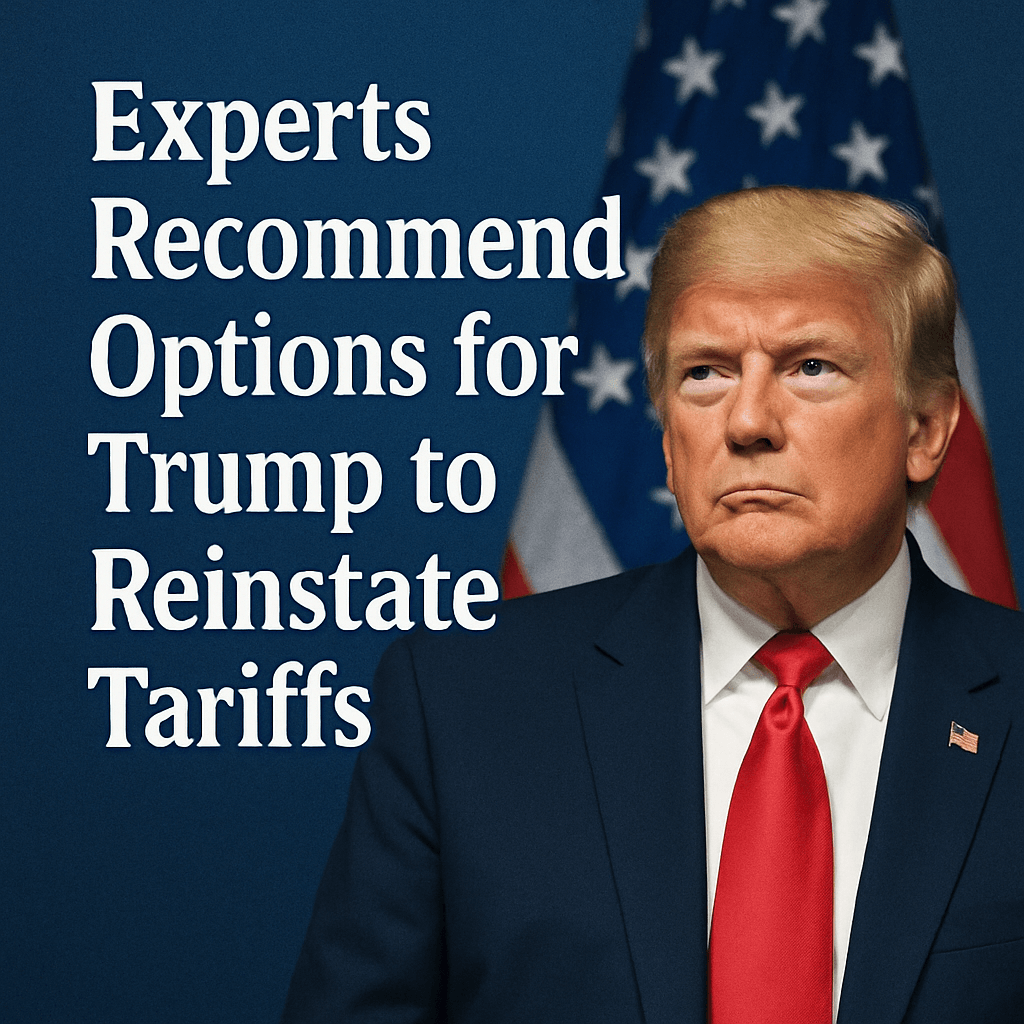Experts Recommend Options for Trump to Reinstate Tariffs

Markets briefly soared after a ruling from the New York–based Court of International Trade invalidated many of the Trump administration’s tariffs, citing overreach of power. However, subsequent rulings and the possibility of legal appeals indicate the administration may still find ways to reinstate tariffs. On Thursday, the Court of Appeals granted an emergency stay on the ruling, allowing current tariffs on various goods to remain in effect until further notice. This development juxtaposed the previous rally, prompting experts to analyze the potential avenues for the administration’s continued tariff agenda.
Understanding the Court’s Ruling and Its Implications
The initial ruling from the Court of International Trade struck down a broad 10% baseline tariff imposed on several nations, as well as specific tariffs levied on imports from China and Mexico under the International Emergency Economic Powers Act (IEEPA). The court determined that such broad tariffs exceeded the authority granted to the Trump administration.
However, it is crucial to note that this ruling does not affect the existing tariffs on steel and aluminum, which remain in place. This carve-out allows the Trump administration some latitude in maintaining tariffs that are justified on national security grounds, potentially providing a pathway for expanding tariffs on other goods.
Experts Weigh In: A Multifaceted Approach
Many analysts believe that despite this judicial setback, the Trump administration retains a few viable strategies for pushing forward with its tariff objectives. Goldman Sachs analysts highlighted that the ruling introduces uncertainty, yet it does not equate to a definitive end for the administration’s tariff plans. They emphasized that Trump’s team is likely already exploring alternatives to circumvent legal hurdles.
Raj Bhala, an expert in international trade law at the University of Kansas, noted, “This ruling may cause a temporary suspension in tariff plans, but the administration’s commitment to addressing trade imbalances remains strong.”
Potential Strategies to Reinstate Tariffs
- Legal Appeals: Lawyers for the Trump administration have already initiated an appeal against the court’s ruling. Given that the court may defer to the President on matters of national security, analysts suggest that there is a solid basis for the appeal. If the administration loses, they have indicated they would escalate the case to the Supreme Court.
- Legislative Action: President Trump can request Congress to pass a bill granting him authority over certain tariff and trade matters. The specifics of such a bill would likely be tailored to sectoral limits and would require provisions for periodic Congressional review. Analysts believe this could garner bipartisan support, especially as election cycles approach.
- Utilizing Existing Trade Laws: The Trump administration can also employ various legal provisions to implement new tariffs. For instance, analysts noted that under Section 122 of the Trade Act of 1974, the administration might be able to introduce an increased baseline tariff of up to 15% for 150 days, without a requirement for further Congressional action. This section allows for rapid implementation, focusing on trade deficits rather than general disputes.
Exploring Additional Legal Avenues
- Section 301 Investigations: The administration could initiate investigations into trading partners’ practices deemed “unjustifiable” under Section 301 of U.S. trade law, providing a basis for potential tariffs with fewer restrictions on levels or duration.
- Section 232 Tariffs Expansion: Tariffs already applied to steel and aluminum could be broadened to include additional sectors using Section 232, which allows tariffs justified by national security concerns.
- Section 338 of the Tariff Act: While largely untested, Section 338 grants authority for tariffs up to 50% on countries that discriminate against U.S. commerce. The novelty of this approach may face scrutiny in courts.
According to White House spokesperson Kush Desai, addressing longstanding trade deficits is a matter of urgency, emphasizing the administration’s stance that unelected judges should not dictate how to manage national emergencies.
Conclusion: Tariff Policy as a Continued Priority
Despite facing judicial challenges, the Trump administration’s commitment to a robust tariff policy suggests that businesses and foreign governments should prepare for potential shifts in trade practices, even amid judicial uncertainties. Raj Bhala emphasized the importance of risk management for businesses engaged in international trade during this tumultuous period. ‘The expectation should be set that some form of tariffs will be sustained or reintroduced under various legal premises,’ he stated.
Source: fortune